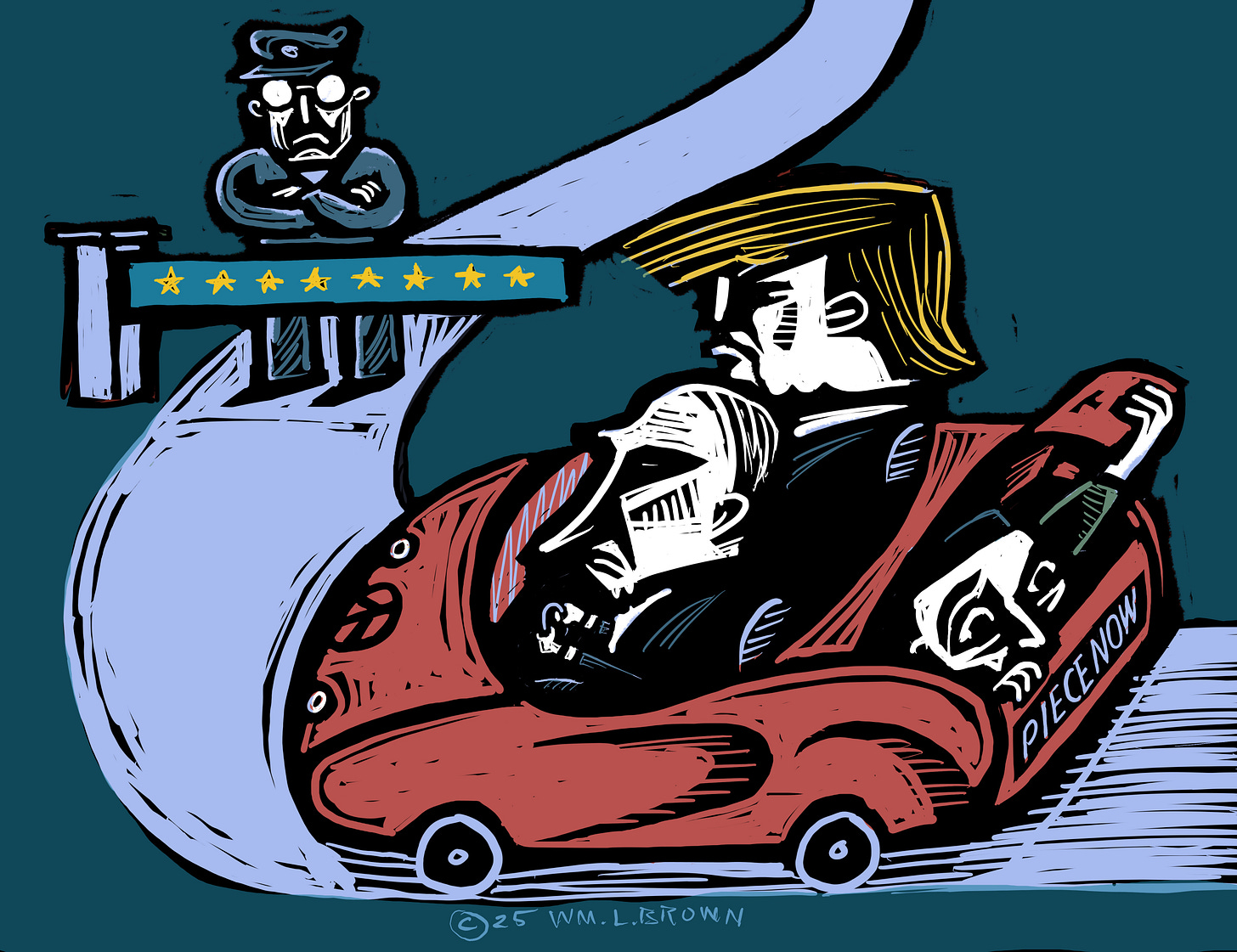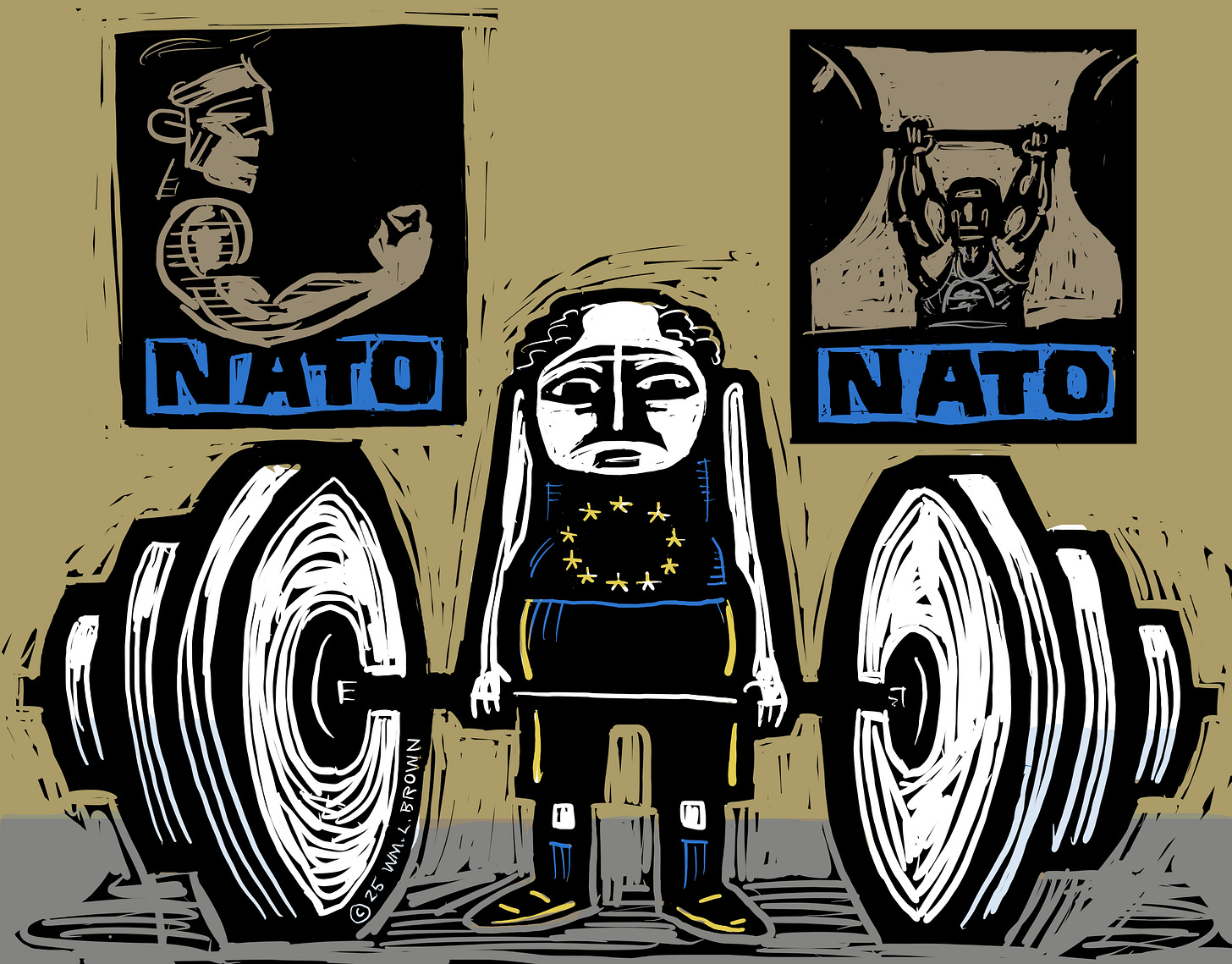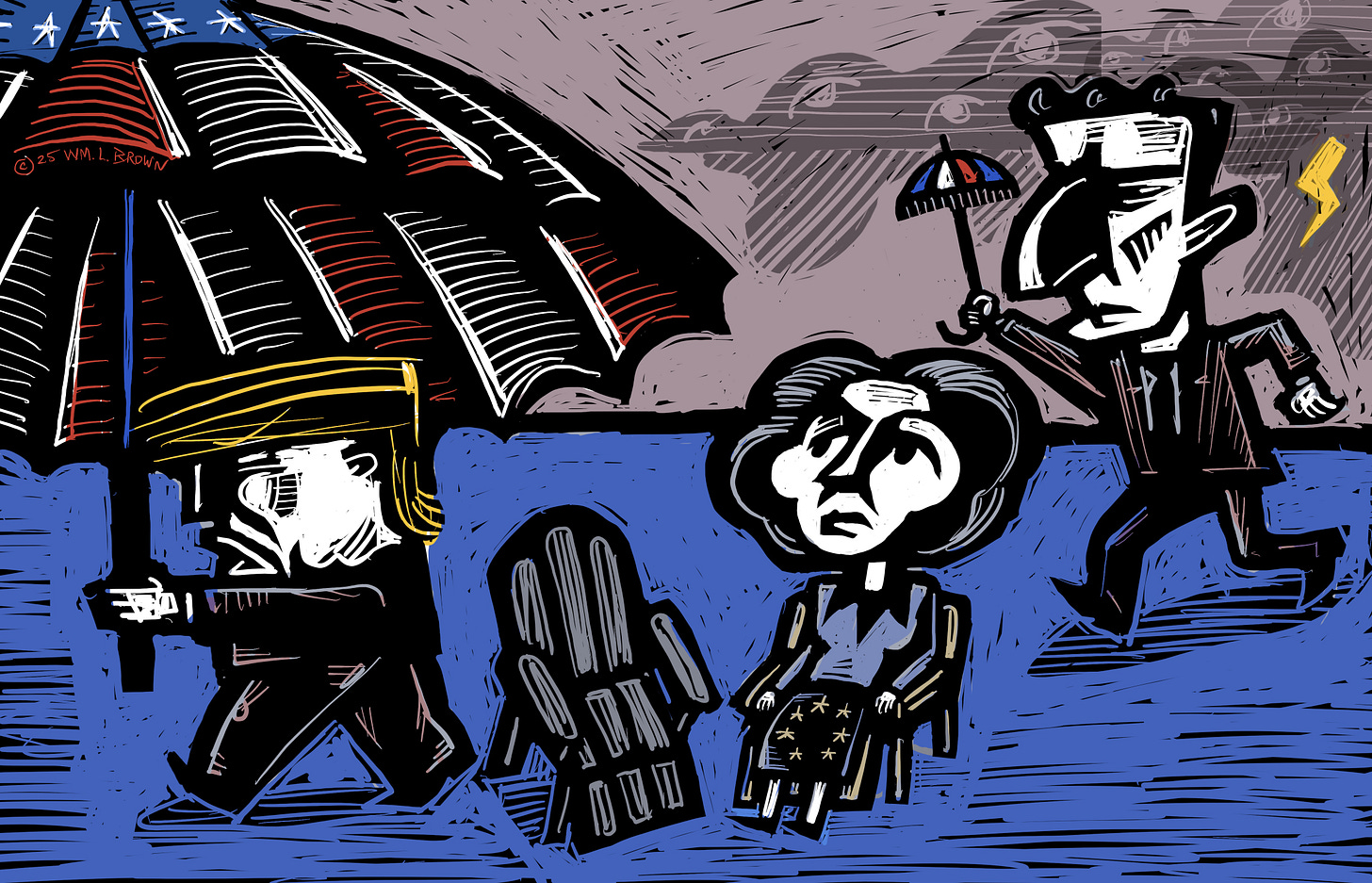Blockcheck ©2025 William L. Brown. Russia and the US agreed to a ceasefire in exchange for dropping some sanctions agaist Russia. Europe, however, refused to drop the sanctions, citing the original terms requiring Russian withdrawal from Ukraine’s territory.
Trump has a point about Europe. Europe has been living a relatively peaceful good life at the United State’s expense. While America spends robustly on defense, maintains a strong military, and develops (and sells) cutting-edge weapons-systems, Europe defense depends largely on the United States standing behind it. Europe spends less on defense, has small standing armies, relies on American weapons and technology to fill out its defense systems. Europe prefers to fund social services, public transport and infrastructure.
Native Cpeaker has had a lot of new subscribers lately. This is due to readers sharing and re-Stacking. Thank you very much, and welcome to new readers!
In better times, this Pax Americana arrangement had advantages that were not widely appreciated until it was broken. It is, or was, a mutual benefit to have the richest country provide the security, allowing our democratic allies to focus on services and infrastructure rather than spending money on their militaries, getting into arms-races and maybe conflicts with one another.
The US, enjoying the world’s largest economy, had the means to provide both international security and European-level domestic services and infrastructure. Foolishly, it chose not to, rejecting universal health care, public transportation and taxing the rich as too socialistic. It also had the economic and military clout to deter other countries from waging wars and breaking international laws. Foolishly, it chose not to when Russia invaded Ukraine.
Perhaps you were one of the many focusing on the inequities of Pax Americana. If so, you had a point. The world did not elect the US to be its police-officer. Some people see the inequity inversely—they see Europeans as freeloaders, the term Trump administration members used in texts inadvertently leaked to Jeffrey Goldberg, the Atlantic magazine editor-in-chief.
Trump has long been bellyaching about this “freeloading.”. In his first term he intimidated NATO allies into increasing their share of expenses by threatening to withdraw security for any country that didn’t. His tactics were brutish, as usual, but he wasn’t wrong. The allies were depending on the US to provide the funds and equipment to keep them safe.
EU At the Gym, ©2025 William L. Brown.
In his second term Trump put Europe on notice that the US is no longer it’s security guarantee. The up-side is that Europe, as evidenced by a series of emergency meetings in March, is now super-focused on funding and building its own defenses and military. Germany, bypassing its constitutional debt brake, plans to spend €1 trillion in defense and infrastructure. The UK prime minister plans defense budget increases, an extra £6.4 billion by 2027.
Yet, EU military aid to Ukraine stumbles. Even a security emergency can’t overcome European’s tendency to squabble and nitpick. A €40 billion joint package failed, and a reduced €5 billion artillery plan is now in jeopardy due to objections by a few member states.
Even without these setbacks, Europe is not yet strong enough to give Ukraine the same backing the US could give. They do not have enough artillery shells, not the capability to make enough—yet. They do not have enough military forces to serve as peace-keepers—yet.
The mixed-side (f there is such a thing) to this is that Europe is reassessing its dependence on US weapons. Weapons systems are like software packages. A fighter-jet becomes a multi-million dollar paper-weight without the latest software update. It is now dawning on Europe that it is not smart to use an unreliable ally as the source of their military-tech updates. There are pros and cons for Europe if they develop and produce their own comprehensive weapons systems. The big con for the US is that they wouldn’t be buying US weapons systems. The political fallout for Trump if the US arms sector takes such a hit would be a pro for those who’d like to see him fail, but maybe not worth all the job layoffs.
Nuclear Umbrellas, ©2025 William L. Brown.
The down-side is nuclear proliferation. Countries are now considering getting nuclear weapons. If they can’t count on the US’s nuclear umbrella, they need to make their own. Nuclear-power France has offered to extend its protection, to other European countries, but has only around 290 warheads, compared to Russia’s estimated 5580 and the United State’s 5440. Unlike Russia and the US, France has no smaller “battlefield” nuclear weapons.
Nuclear proliferation is the consequence of the US under Trump abandoning the leadership of the free world. Trump has granted the wishes of every power-hungry leader and every nuclear-arms producer.







The US has proven over and over that it is not going to do anything useful with the so called savings from anything. There has not yet been , nor will there probably ever be, a peace dividend in a trillion dollar military budget. That path has been available and unused since the end of the Cold War. What we give away is mostly outdated ordnance and and weapons we don't use. If the so called freeloading ended the miniscule USAID spending still would not be reinstated. Europe seems to be on a course to defending itself. Maybe that's the best possible outcome.